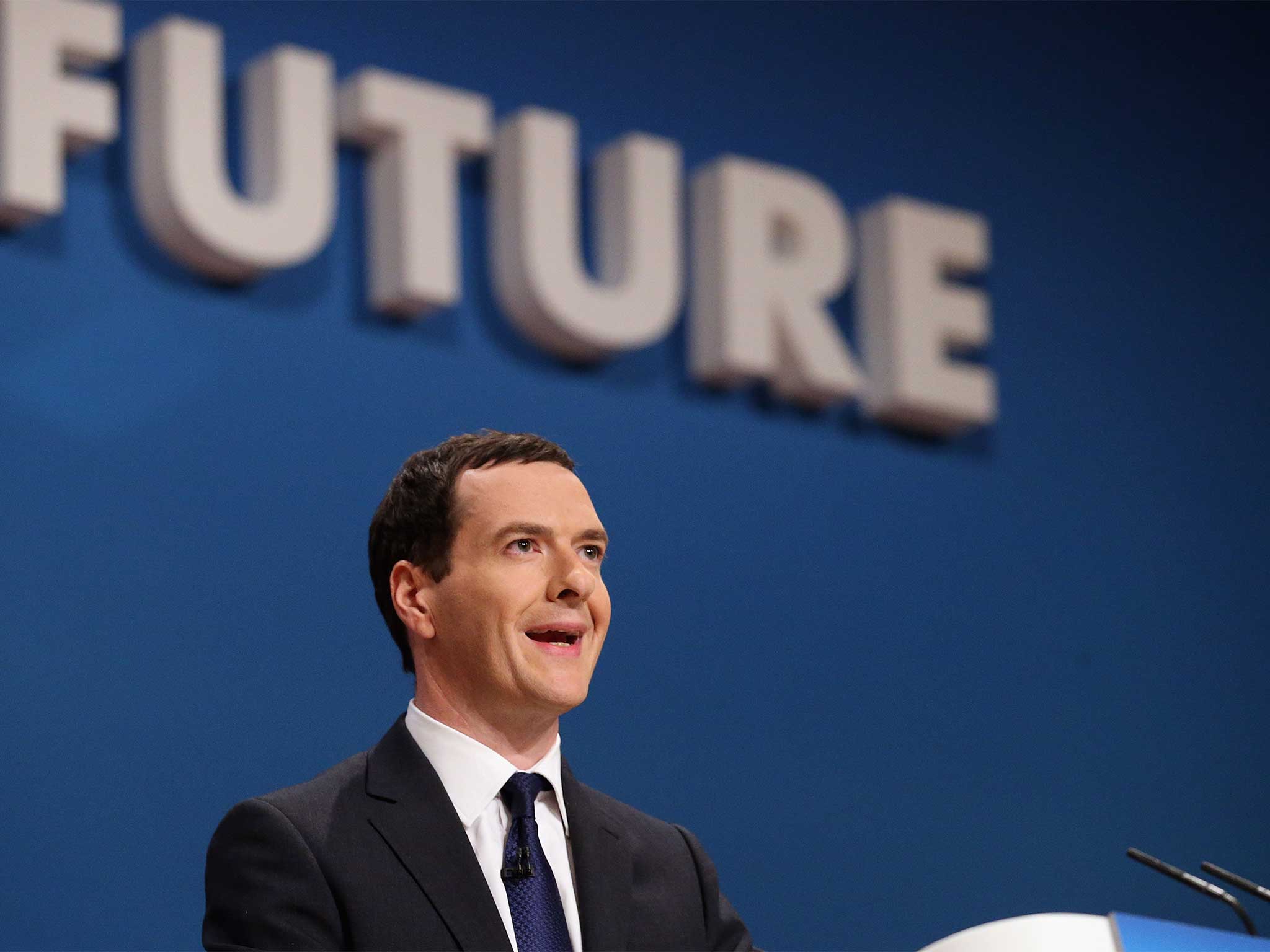Deficit headache for George Osborne as public borrowing jumps again
Chancellor will have less to give away in tax sweeteners before the election

Your support helps us to tell the story
From reproductive rights to climate change to Big Tech, The Independent is on the ground when the story is developing. Whether it's investigating the financials of Elon Musk's pro-Trump PAC or producing our latest documentary, 'The A Word', which shines a light on the American women fighting for reproductive rights, we know how important it is to parse out the facts from the messaging.
At such a critical moment in US history, we need reporters on the ground. Your donation allows us to keep sending journalists to speak to both sides of the story.
The Independent is trusted by Americans across the entire political spectrum. And unlike many other quality news outlets, we choose not to lock Americans out of our reporting and analysis with paywalls. We believe quality journalism should be available to everyone, paid for by those who can afford it.
Your support makes all the difference.George Osborne’s hopes of cutting the deficit were dealt a blow as official figures showed public borrowing over the first half of 2014-15 running 10 per cent higher than a year earlier.
Borrowing in September alone was £11.8bn, more than 15 per cent up on the same month last year, according to the Office for National Statistics. Economists had expected borrowing for the month to come in at just £10.5bn.
Tax receipts were only 3.1 per cent higher than a year earlier, despite the strong recovery. But the bigger disappointment was on government spending, which was up 3.7 per cent. Social benefit payments were 5.4 per cent higher, reflecting higher pension payments.
“With borrowing cuts missing in action, the Chancellor could face a testing time in the run-up to the election” said Robert Wood of Berenberg Bank.
Other analysts pointed out that the weak public finance figures meant it would be much harder for Osborne to announce any tax cuts ahead of next May’s poll. “This gives him little scope to announce any major sweeteners,” said Howard Archer of IHS Global Insight.
Robert Chote, the head of the Government’s fiscal watchdog, highlighted last week that income tax receipts were falling short, despite a surge in employment.
The discrepancy suggests many of the new jobs being created are low-skilled and relatively poorly paid, according to some economists.
Other culprits are likely to be successive rises in the tax-free personal allowance, and high earners shifting their incomes into the previous financial year to take advantage of the cut in the higher rate of tax.
In March the Office for Budget Responsibility projected full-year borrowing for 2014-15, excluding financial interventions and various one-offs, of £95.5bn, down 12 per cent from the 2013-14 deficit.
But with six months of the financial year gone, the Government is already more than half way towards this target, having borrowed £57.3bn, according to the ONS.
“Borrowing would have to be a whopping 37% lower than last year in the remaining six months of the fiscal year for the annual total to match the OBR’s forecast” said Samuel Tombs of Capital Economics.
For the financial year to date tax receipts are down 0.4% while government expenditure is 2.1 per cent higher. While VAT receipts are up 4 per cent, income tax and capital gains are just 0.1 per cent higher.
According to the ONS the national debt rose to £1.451 trillion in September, equal to 79.9 per cent of GDP.
Join our commenting forum
Join thought-provoking conversations, follow other Independent readers and see their replies
Comments